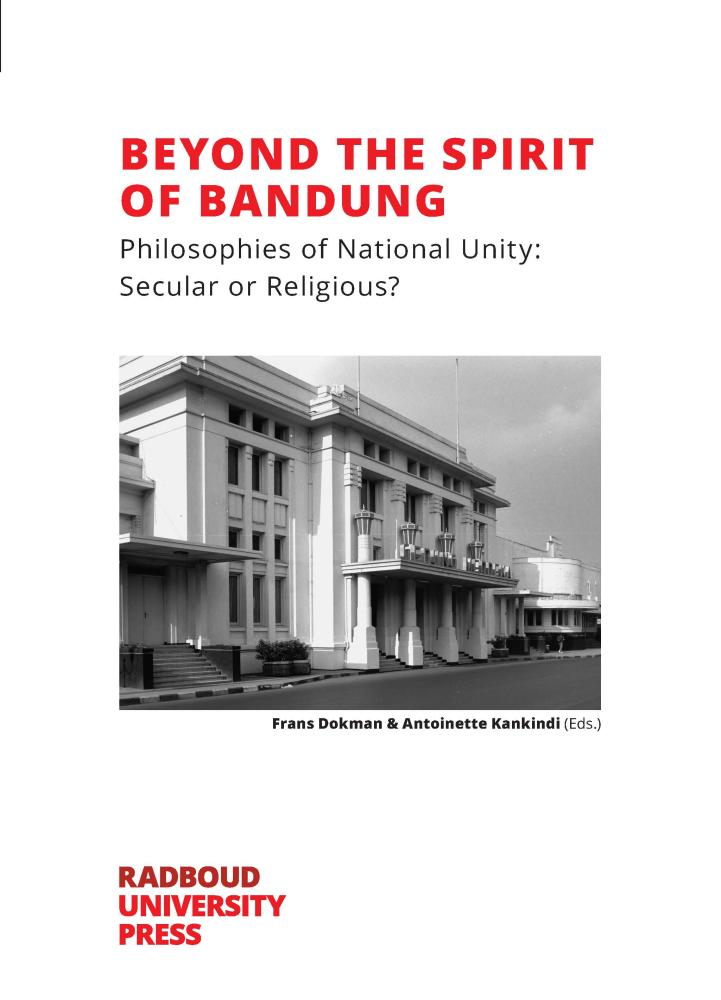Beyond the Spirit of Bandung: Philosophies of National Unity: Secular or Religious?
Keywords:
Bandung Conference, National Unity, Philosophy, Religion, Secularism, International RelationsSynopsis
The 1955 Bandung Conference was an Asia-Africa forum, organized by Indonesia, Burma, India, the then Ceylon (Sri Lanka) and Pakistan. Representatives of 29 independent Asian and African countries met in Bandung, Indonesia, to discuss matters ranging from national unity, cooperation, decolonization, peace, economic development and their role to play in international policy. The ten points’ declaration of the conference, the so-called ‘Spirit of Bandung’, included the principles of nationhood for the future of the newly independent nations and their interrelations. After the conference most ‘non-aligned’ Asian and African countries opted for philosophies of national unity to guarantee peace and stability.
Much is required of a philosophy of national unity. It should connect and inspire citizens via shared ideals, provide a basis for equal citizenship, construct a national history and national identity, being the foundation for laws and institutions etc.. Nowadays, changed international relations have created a diversity of views on secular or religious philosophies of national unity. This development has only made the question of the role of religion in this post-secular era more pressing. In the context of the resurgence of religions, the Bandung conference marks the increasing relevance of the choice at the time for a secular or religious approach. In the African case of Tanzania, the Ujamaa philosophy was secular although Tanzania had a ‘civic religion’. In the Asian case of Indonesia, the philosophy of Pancasila was ‘religious pluralistic’ by recognizing six ‘official’ religions. In both this and other countries, the philosophies of national unity are now contested. Therefore, 68 years after the Bandung Conference, experts from Africa, Asia and Europe do critically answer the questions:
- What philosophy, secular or religious, succeeds or succeeded in promoting peace and stability?
- Are there comparable philosophies of national unity from other countries?
Chapters
-
1. Introduction
-
2. Indonesia’s Public Diplomacy: Interfaith Meetings in the Netherlands
-
3. Coping Intolerance and Separatism in Indonesia: The Pancasila Principles
-
4. Pancasila and Ujamaa: Philosophies of Unity for Promoting Tolerance in a (Global) Society Which is Multi-Cultural and Multi-Religious
-
5. Recycling Ujamaa Philosophy in Tanzania: A Critical Discourse Analysis of John Pombe Magufuli’s Speeches
-
6. Earth Religion, “Forest People” and Environmental Disputes: A Case Study on a Pursuit for National Unity and Sustainability in Estonia.
-
7. Origination, Transposition and Decolonization: Indian Perspectives on Unity in Mauritius as Basis of the Bandung Conference
-
8. Intercultural Philosophy as Philosophy of National Unity: An African Perspective
-
9. Rainbow Nationalism as a Philosophy of National Unity in South Africa: Interpellation and Disillusionment
-
10. Ubuntu Worldview as a Condition of Possibility for National Unity
-
11. Palaver Platforms: An Ubuntu Initiative for National Unity and Social Media
-
12. Epilogue: A National Unity of Citizens, Believers and Dissenters

Published
Series
License

This work is licensed under a Creative Commons Attribution-NonCommercial-NoDerivatives 4.0 International License.


